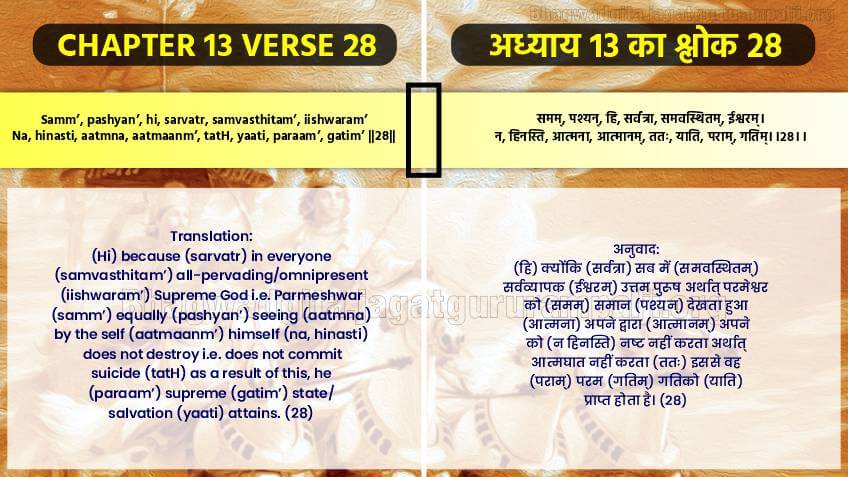
Samm’, pashyan’, hi, sarvatr, samvasthitam’, iishwaram’
Na, hinasti, aatmna, aatmaanm’, tatH, yaati, paraam’, gatim’ ||28||
Translation: (Hi) because (sarvatr) in everyone (samvasthitam’) all-pervading/omnipresent (iishwaram’) Supreme God i.e. Parmeshwar (samm’) equally (pashyan’) seeing (aatmna) by the self (aatmaanm’) himself (na, hinasti) does not destroy i.e. does not commit suicide (tatH) as a result of this, he (paraam’) supreme (gatim’) state/salvation (yaati) attains. (28)
Translation
Because seeing the all-pervading Supreme God equally in everyone, he does not destroy himself by the self i.e. does not commit suicide. As a result of this, he attains the supreme state/salvation.
समम्, पश्यन्, हि, सर्वत्रा, समवस्थितम्, ईश्वरम्।
न, हिनस्ति, आत्मना, आत्मानम्, ततः, याति, पराम्, गतिम्।।28।।
अनुवाद: (हि) क्योंकि (सर्वत्रा) सबमें (समवस्थितम्) सर्वव्यापक (ईश्वरम्) उत्तम पुरूष अर्थात् परमेश्वरको (समम्) समान (पश्यन्) देखता हुआ (आत्मना) अपनेद्वारा (आत्मानम्) अपनेको (न हिनस्ति) नष्ट नहीं करता अर्थात् आत्मघात नहीं करता (ततः) इससे वह (पराम्) परम (गतिम्) गतिको (याति) प्राप्त होता है। (28)
